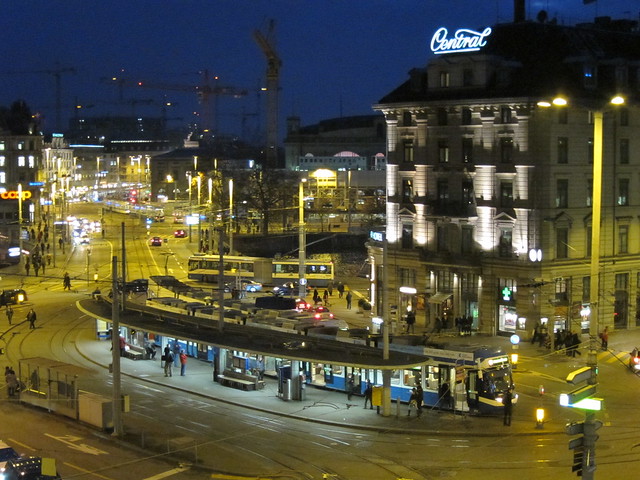OBRIGATÓRIO LER Visual Complexity: Mapping Patterns for the Information Age – o livro do Manuel Lima que saiu do Visual Complexity!
David Hales: why computer people need to think about political economy and other issues
Today at ISCTE-IUL we’ll have a seminar by David Hales. David Hales is a researcher at the Open University in the United Kingdom. His research is at the overlap between computer science and social science. He has a background is Computer Science and Artificial Intelligence but he has spent a lot of time with Sociologists, Philosophers and even lapsed Economists doing simulations.
He has been doing a lot of interesting research and his talk today is about “The socio-economics of distributed systems (why computer people need to think about political economy and other issues)“.
The seminar is Friday, 3rd June 2011, 18h00 at ISCTE-IUL, building 2, room C402
Later this year, he will also be the Keynote speaker of the PhD in Progress Workshop that I’m organising in Vienna during ECCS’11, so if you can’t see him talk today, you can always joins us in the European Conference on Complex Systems and have a good time!
Day 2 at ETH – Papers brainstorming and 2 talks

Today at this short ETH visit we spent most of the day discussing ongoing projects and brainstorming ideas and possible future papers. We also had the pleasure to attend 2 talks in the late afternoon that were very interesting. The first one was by David Rand from Harvard about Reward, Punishment, and the evolution of cooperation. The second was by Ole Peters from Imperial College, about the Role of time in economics. This is was part of ETH Interdisciplinary Seminar FS 2011. Next week it theobservatorium.eu turn to be there on stage…
On another front… Can anyone in a place that is warmer than freezing point send me some heat? I’m cold!
Day 1 at ETH – Zurich – Monitoring socio-technical adaptive networks
First day at Zürich… The talk to Dirk Helbing‘s team went fine. I was totally deaf because of the air pressure during the plane flight and was also a bit cold. So I was pretty much in pain for the entire presentation. But in the end everything went fine. The pdf of the presentation “monitoring socio-technical adaptive networks” is available for download, if you are curious!
Novel properties generated by interacting computational systems: A minimal model
In this draft paper, Fabio Boschetti and I<John Symons> address two questions: First, what is the smallest number of components a computational system needs in order to display genuine novelty? And second, can the novel features of such systems also exhibit novel causal powers? We’d be very grateful for any comments or criticism. The paper is herevia Novel properties generated by interacting computational systems: A minimal model « Objects and Arrows.
After reading John Symons and Fabio Boschetti draft paper I found myself thinking about some things:
- Isn’t this model with the two machines and one IIM similar in some way to what optimization research has done with genetic algorithms (GA)? Or, aren’t genetic algorithms an example of this? If we take a careful look, a chromosome in a GA is something that maps its genome to itself behaving like a machine, and is subject to two (usually two) external interaction openness: crossover with another chromosome to produce a new population, and mutation to random change some of its genes. These operators would then play the role of the interactive identity machine (IMM). It’s curious that GAs end up being so similar but have been studied under an optimization framework.
- Other aspect that caught my mind is the problem of using an alphabet or memory positions as in machine D. This is something that in CS is natural as it’s represents the obvious pass by value vs. pass by reference. In CS practice each has its merits but it’s interesting to see this reflected in the paper.
- The previous bullet remembers me the need of building agents with operations as generic as they can be… Imagine swap(int, int). It’s probably better to have swap(Obj, Obj) as in this case you might end having a generic operator that will allow your agents to face unknown situations, even if you only work with ints…
New experiments in embodied evolutionary swarm robotics
Thus, not only do the real robot’s controllers evolve, but their internal models of themselves and their world, co-evolve. This, we believe, is the real advantage of embodied evolution.via Alan Winfield’s Web Log: New experiments in embodied evolutionary swarm robotics.
embodied evolutionary swarm robotics might be on to something… and for some reason this way of doing things is already percolating to science fiction… :) BSG, Caprica fans probably remember Zoe talking to the lab guy about making the robot co-evolve by interacting with the real world… :)
Multi-Agent–Based Simulation of University Email Communities
In this chapter, a study on informal communication network formation in a university environment is presented. The teacher communication network is analyzed through community detection techniques. It is evident that informal communication is an important process that traverses the vertical hierarchical structure of departments and courses in a university environment. A multi-agent model of the case study is presented here, showing the implications of using real data as training sets for multi-agent-based simulations. The influence of the “social neighborhood,” as a mechanism to create assortative networks of contacts without full knowledge of the network, is discussed. It is shown that the radius of this social neighborhood has an effect on the outcome of the network structure and that in a university’s case this distance is relatively small.by David M.S. Rodrigues_ Multi-Agent–Based Simulation of University Email Communities.
This book chapter is a spin-off of the work I’ve done previously with the CIUCEU model for university email communities, where I mixed agents simulations with community detection algorithms with real data to show that it’s possible to capture the structure of university communities even in the presence of noisy and incomplete data. The assortative nature of these communities is so strong that the agent simulation coupled with the other techniques gives good results in identifying them.
Free and Open-Source Software is not an Emerging Property but Rather the Result of Studied Design
Free and open source software (FOSS) is considered by many, along with Wikipedia, the proof of an ongoing paradigm shift from hierarchically-managed and market-driven production of knowledge to heterarchical, collaborative and commons-based production styles. In such perspective, it has become common place to refer to FOSS as a manifestation of collective intelligence where deliverables and artefacts emerge by virtue of mere cooperation, with no need for supervising leadership.by Paolo Magrassi: Free and Open-Source Software is not an Emerging Property but Rather the Result of Studied Design.
What is Free and Open-Source Software? What is it not? Anyone interested in this phenomenon should read this paper as it gives some insights on some pitfalls of the more romanticized view of the bottom-up approach of open-source emergence. As any complexity scientist will tell you, bottom-up alone usually doesn’t lead to interesting things, you need the top-down approach also, but not too much. You need feedback loops (positive and negative) going from local to global and vice-versa and you need iteration. You need entanglement of all these and then you need to let your system run for long time before you can conclude anything definite about it. This paper seems a bit like a conclusion of this process in the FOSS world.
